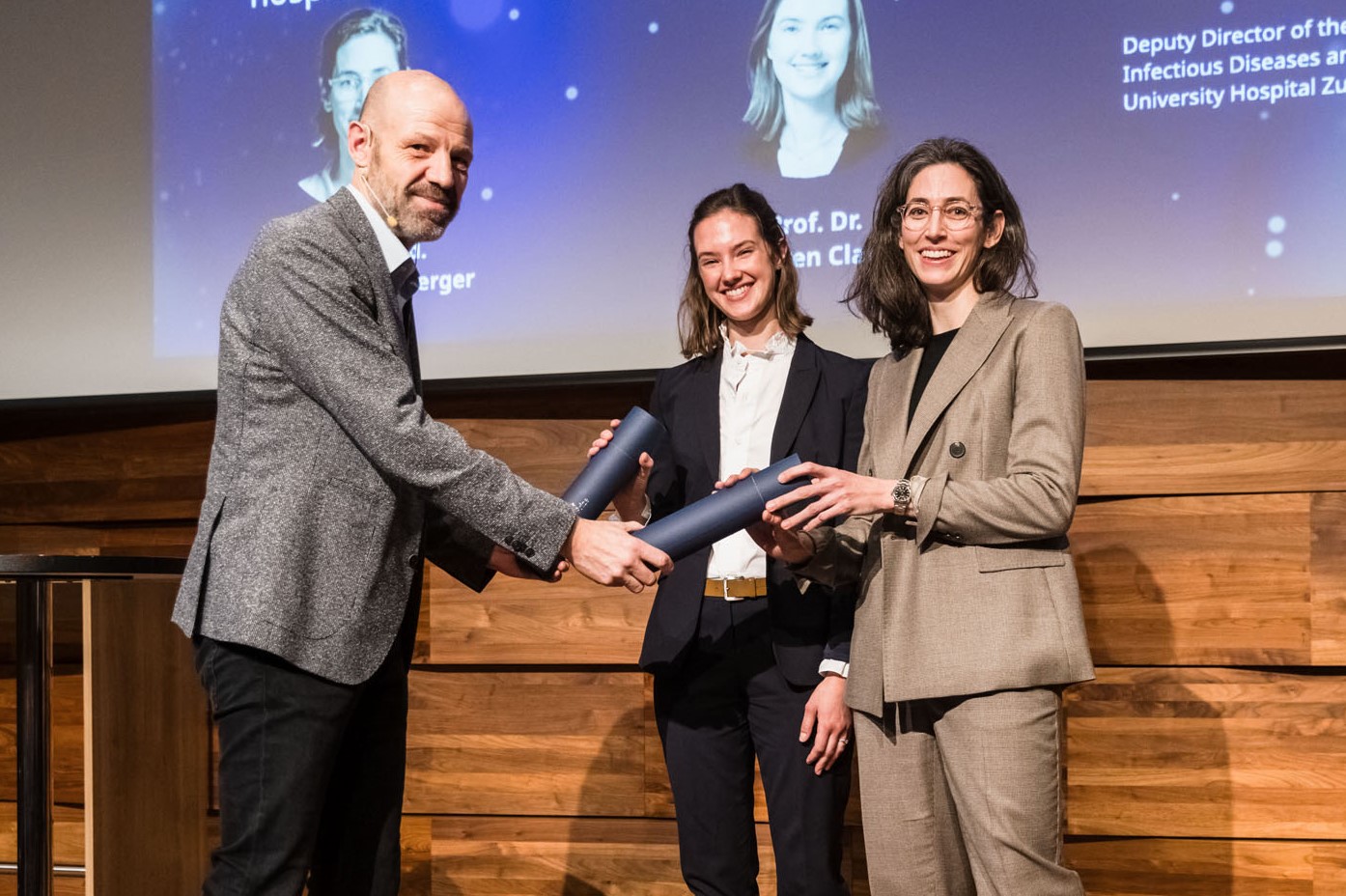Pfizer Research Prize goes to MD PhD Aline Wolfensberger and Professor Lauren Clack

MD PhD Aline Wolfensberger and Professor Lauren Clack from the Institute for Implementation Science in Health Care (IfIS) and Department of Infectious Diseases and Hospital Epidemiology at the University Hospital Zurich (USZ) received the Pfizer Research Award on 25 January, 2024. The prize was awarded for outstanding and pioneering contributions to basic or clinical research at Swiss research institutes or hospitals. The work of the IfIS researchers on non-ventilator-associated hospital-acquired pneumonia was recognized in the category "Infectious Diseases, Rheumatology and Immunology".
The Pfizer Research Prize Foundation has been honoring outstanding findings in basic biomedical research and clinical research for 33 years. MD PhD Aline Wolfensberger and Professor Lauren Clack from the IfIS and Department of Infectious Diseases and Hospital Epidemiology at the University Hospital Zurich (USZ) are among the thirteen scientists who were honoured on 25 January, 2024.
Two papers were recognized in each of five categories and a prize money totalling 150,000 Swiss francs was awarded. The IfIS researchers won in the category "Infectious Diseases, Rheumatology and Immunology" and received a prize money of 15,000 Swiss francs. In his laudatory speech, Professor Huldrych Günthard emphasized the "implementation impact": the implementation of the research results in practice is already having an effect in the hospitals.
Non-ventilator-associated hospital-acquired pneumonia (nvHAP) is a frequent, but under-researched infection. In their paper, MD PhD Aline Wolfensberger and Professor Lauren Clack aimed to simultaneously test nvHAP prevention interventions and a multifaceted implementation strategy. The intervention effectiveness correlated with successful implementation of the nvHAP bundle. Individual and organizational determinants of this success could be described qualitatively and knowledge of the determinants of implementation success might help in upscaling nvHAP prevention.